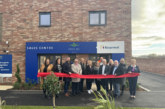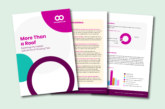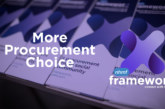 A famous wartime recruitment poster from 1915 asks, “Daddy, what did YOU do in the Great War?” I wonder if in the months and years to come people will look back and ask, “What did you do during the pandemic?” Alan Long, Executive Director at the Mears Group, underlines the importance of supporting communities during this time of need.
A famous wartime recruitment poster from 1915 asks, “Daddy, what did YOU do in the Great War?” I wonder if in the months and years to come people will look back and ask, “What did you do during the pandemic?” Alan Long, Executive Director at the Mears Group, underlines the importance of supporting communities during this time of need.
Many companies have been making some very swift, very big decisions of late which will have innumerable impacts. Our first task is to protect our workforce as much as we can — how we are best supporting our colleagues in terms of wages; how we can protect them from disease; how we support their physical and mental health; how to ensure that their wellbeing is in check.
We have also had to negotiate with all of our clients whether delivering repairs and maintenance, housing management or care services. What services do they need? Are these essential? Will they keep paying us so we can keep paying our own supply chain?
Every action has a reaction and it has been so hard for companies to game these questions through to ensure they are making the right decisions to come through this crisis unscathed. But from what I have seen from colleagues and clients of late I am genuinely proud of the sense of purpose and determination to get things right.
And I want to turn this purpose and determination to our most important stakeholders — our communities. If the latest OBR forecasts are right, then we will see more communities left behind economically. Unemployment last seen in the early 1990s or a depression as great as the one in 1709 brought on by the Great European Freeze.
Earlier this year Mears commissioned the think tank Localis to review the Social Value Act and to recommend ways in which we can level the playing field when commissioning social value. It may seem like an odd time to release a thought piece but looking at the report recommendations, I am convinced that this is a golden opportunity to get things right now so that our most vulnerable communities can harness the support of the private sector in a genuinely meaningful way.
The public sector procurement community is bracing itself for an onslaught of tender responses to normal services as well as a glut of COVID-19 recovery contracts. Such professionals will be keen to ensure that their own actions in commissioning deliver not just economic efficiency and long-honoured ‘value for money’ but also promote community resilience and social wellbeing that has the potential to deliver and embed real social value in the recovery process. This report offers a clear route map for realising the promise of social value.
The report finds:
- The lives of residents must measurably improve as a result of how councils commission and provide local public services.
- It calls for a standardised approach to evaluating social value which would give communities a greater say in the benefits received in the commissioning of local public services from commercial suppliers.
- The report calls for the public sector to adopt a Community Value Charter as a standard framework for setting place-sensitive local outcomes that build on inherent strengths such as social and natural capital.
- We call for a greater sense of human values, trust and relationship in how we generate value for our communities from the commissioning process.
- Providers must be accountable to residents, tenants and local people for both the services they deliver, and the benefits agreed to when business contracts are signed.
- These must be explained in a clear way — not through complex targets and opaque mechanisms. We must see strong actual proof in how effectively local services are provided as something which is reflected in the improved lived experience of people in our communities.
I will be writing to our competitors shortly to suggest joint action on this important work, and we are already engaged with the Treasury and Cabinet Office on taking these proposals forward.
“What did you do during the pandemic?” I hope I know what the answer will be for the housing sector — we stood fast and firm with our colleagues, our local government and housing association partners and above all, our communities.
Header image ©Robert Kneschke/AdobeStock.









